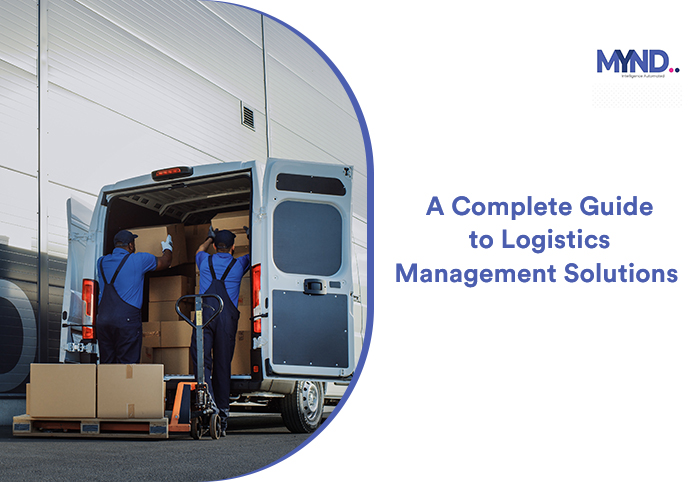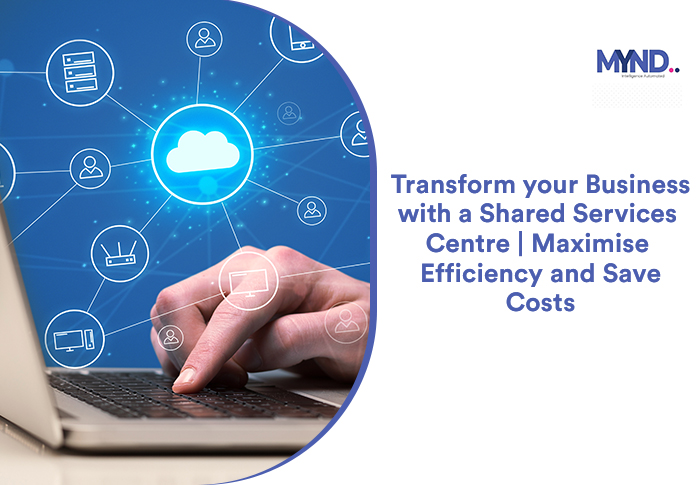A Complete Guide to Logistics Management Solutions
Planning and execution are used in supply chain logistics management to store and transport products and services to customers. A logistics management system software often oversees supply and demand forecasting, order processing, inventory control, warehouse and fleet management, outbound and inbound transportation management, and order and fleet management. Production planning, sourcing, purchasing, packaging, and dispatching are just a few of the crucial supply chain tasks it handles. These activities span from product creation to commercialization. An appropriate method must also be found to transport goods and services to the final consumer.
Logistics management solutions streamline logistical processes by optimizing the product cycle and facilitating quick access to vital information. From supplying raw materials to shipping finished goods to customers, logistics management software aids firms in managing the many steps in the production cycle.
Logistics management software has expanded in scope and capabilities to handle a wide range of processes and tasks. It is comparable to supply chain management solutions, which have capabilities for managing suppliers, procedures, and transactions. Processing purchase orders, handling purchase orders from customers, managing inventories, managing suppliers, and managing sales and distribution are all included in the capabilities of logistics management software.
Principal
Components of Logistics Management Software
If your business is looking to buy or develop a logistic management solution, be sure it has the functionality required for shipments to run smoothly. Among the essential requirements for logistics management software are:
1.
Large numbers of online orders can be efficiently
handled with an order management system. From the time an order is placed until
it arrives at the delivery location, it keeps an eye on and tracks every order.
For organizations, the order management process is made simpler by features
like automated scheduling, real-time optimization and tracking, automatic bill
generation, managing order status, and different payment channels.
2. CRM modules keep track of
important data related to customer orders, including order dates, contact details,
cargo status, order estimation, and payment details. To enable logistics
managers to easily regulate the flow of inventory and quickly locate the
relevant documents whenever necessary, this makes sure that each and every
transaction is documented in one location.
3. Using
real-time sales data and historical trend analysis, firms can simply monitor
active orders, trace shipments, and reorder supplies with efficient inventory
management.
4. It enables
owners and managers to keep a close eye on their physical warehouses. In order
to maintain ideal conditions for the distribution and storage of inventory with
the least amount of human intervention, it makes use of IoT devices, sensors,
and smart storage solutions. This results in expedited shipment, reduced costs,
and improved tracking, storage, and order fulfilment.
5. Maximizing customer
value, increasing profitability, and achieving sustained competitive advantage
are all made possible by effective supply chain management. It coordinates the
manufacture, transportation, and delivery of commodities and controls the
transfer of products from raw materials to completed goods.
6. Organizations
can use the demand forecasting capability to plan stock and supply in
accordance with changes in demand. Utilizing historical sales data, demand
planning systems examine a product's lifespan, spot trends, and forecast future
demand. This function aids in preventing the ordering of excessive or
inadequate inventory.
7. With the
aid of logistics tracking software, firms can organize, carry out, and optimize the
physical delivery of finished goods from warehouses to customers. It helps
fleet managers in determining the best delivery routes, streamlining driver
assignments, and accelerating pickup and delivery processes, all of which help
cut expenses.
8. By having access to real-time data, managers may decide when to halt production and purchase more inventory by knowing where things stand at every point in the supply chain.
Advantages of Using
Logistics Software for Businesses
Improving
supply chain performance needs careful planning, sourcing, manufacturing,
delivery, and return. By entrusting these procedures to logistics management
software, the supply chain gains operational agility. A corporation or
third-party logistics provider can profit from the following features of
logistics management software.
1.
Using
logistics software significantly simplifies and reduces transportation costs.
Logistics management software simplifies data analysis and decision-making to
save costs and maximize efficiency.
2. Several challenges
affecting delivery and delays plague the logistics and supply chain industries.
Businesses may quickly deliver their items to clients by utilizing logistics
software. Logistics management software reduces delivery time significantly by
shortening the production cycle and selecting an appropriate carrier. Finally,
it significantly reduces shipping delays.
3. Another
significant advantage of deploying logistics management software is the
reduction of human errors. Manually evaluating vast amounts of data is
difficult and time-consuming, resulting in problems. Logistics software
streamlines work by quickly processing data and moving activities forward with
minimal delays.
4. Process automation is a
huge benefit of logistics software integration. Certain operations of logistics
software, such as designing cargo routes, capacity planning, and bidding loads
to carriers, are easily automated. It also reduces paper work, allowing for
more efficient and timely process management.
5. Logistics software may
compare alternative shipping firms, delivery agents, and transportation methods
to find the best deal. Another way logistics software saves money is by
reducing the number of expedited shipments by improving shipment planning.
6. Logistics software gives excellent customer support tools for all types of assistance. It serves as a platform for centralizing all customer assistance requirements. Chatbots, automatic alerts, notifications, and virtual assistants improve the speed and quality of customer assistance.
Selecting
the Best Software for Logistics Management
The demand for software solutions in the industry has become essential as trends move logistics management in a forward-looking manner. Businesses that supply services or concentrate on online commerce can both benefit from using logistics management software. Finding the proper logistics software, given that each firm has different needs, is the true challenge.
Understanding the everyday needs and difficulties a firm faces is crucial before choosing software for logistics management. A thorough examination might assist in identifying weaknesses in a company's current logistical processes. In addition, it can offer solutions for any cycle flaws that are found.
When
selecting logistics management software, there are a number of important things
to take into account. First of all, it needs to include a foundational set of
features that can help with straightforward logistical management activities.
In addition, the software needs to include plenty of other features to handle
the broad range of logistical operations and procedures used by businesses.




Comments
Post a Comment